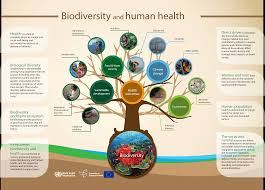Cultivating Connections: The Eden Project – Empowering Schools Through Community Food Gardens

Welcome to our educational blog post, where we explore the inspiring world of the Eden Project. This school-based, peer-led community food garden project fosters philanthropy and community service. The Eden Project empowers schools across the globe to create sustainable gardens, engaging students in hands-on learning, environmental stewardship, and the joy of giving back. Join us as we delve into this transformative initiative and its potential to inspire students and schools everywhere.
- The Eden Project: Cultivating Growth and Giving The Eden Project is a renowned educational charity in Cornwall, England. At its heart lies the vision of connecting people with each other and the natural world. With a focus on community, sustainability, and education, the Eden Project encourages schools to establish community food gardens, which serve as vibrant learning spaces and catalysts for philanthropic action.
- Peer-Led Learning: Students Taking the Lead One of the unique aspects of the Eden Project is its emphasis on student-led initiatives. Students are central in planning, designing, and maintaining their community food gardens. This peer-led approach cultivates leadership skills, fosters teamwork, and empowers students to positively impact their school and community.
- Hands-On Learning: Growing More Than Plants Community food gardens provide rich experiential, hands-on learning opportunities. Students engage in various activities, including planting, tending, and harvesting crops, learning about sustainable gardening practices, understanding the importance of biodiversity, and discovering the connections between food production and nutrition. This holistic learning experience equips students with practical skills, environmental awareness, and a deeper appreciation for the food they consume.
- Environmental Stewardship: Nurturing Sustainable Practices The Eden Project instills students’ sense of stewardship. The project encourages schools to adopt eco-friendly practices that benefit the local ecosystem and the broader environment by promoting organic gardening, composting, water conservation, and habitat creation. Students learn to be caretakers of the Earth, gaining insights into the interconnectedness of nature and their role in preserving it.
- Philanthropic Community Service: Growing Together, Giving Back The community food gardens established through the Eden Project also serve a philanthropic purpose. Students are encouraged to donate a portion of their harvest to local food banks, shelters, or community organizations, fostering a sense of social responsibility and empathy. Giving back strengthens community bonds and nurtures a culture of compassion and generosity.
- Inspiration for Schools Everywhere: Starting Local, Thinking Global The Eden Project inspires schools worldwide to embrace similar initiatives. By adapting the principles of community food gardens, peer-led learning, and philanthropy, schools can create projects that nurture environmental consciousness, student leadership, and community engagement. The Eden Project’s model provides a blueprint for schools to make a positive difference in their local communities while promoting global awareness and connection.
The Eden Project™, a school-based, peer-led community food garden initiative, offers a transformative educational experience. By nurturing sustainable practices, fostering peer leadership, and instilling a spirit of philanthropy, this initiative by PubEd™ empowers students and schools to positively impact their environment and community.
If your school, teachers, or community groups are interested in hosting an Eden Garden Project at your school, we would like to encourage you to contact us directly. Our team at PubEd™ is ready to provide more information, guidance, and support to help you establish your own community food garden.
Students interested in community service experiences and getting involved in “the Eden Project”™ are encouraged to reach out with any questions. We at PubEd™ are here to support and guide you on your journey to making a difference in your school and community.
Join us in our next blog post as we continue to explore innovative educational initiatives that inspire, empower, and shape the world around us.
Annotated Bibliography
- Eden Project. (n.d.). About Us. Retrieved from [https://www.edenproject.com/] This official website provides detailed information about the Eden Project, a school-based, peer-led community food garden initiative. It offers insights into the project’s mission, goals, and impact. The website serves as a valuable resource for understanding the origins and philosophy behind the Eden Project.
- National Gardening Association. (n.d.). Youth Gardens. Retrieved from [https://garden.org/youth-gardening/] The National Gardening Association offers a wealth of information and resources on youth gardening programs. It guides establishing community gardens, engaging students, and integrating garden-based learning into educational settings. The website is a valuable reference for schools interested in implementing their community food garden projects.
- Center for Ecoliteracy. (n.d.). School Gardens. Retrieved from [https://www.ecoliteracy.org/programs/school-gardens] The Center for Ecoliteracy provides resources and support for schools interested in implementing school garden programs. Their website offers guidance on planning, curriculum integration, and sustainability practices. It provides educators valuable tools to cultivate educational gardens and foster environmental stewardship.
- FoodCorps. (n.d.). School Garden Programs. Retrieved from [https://foodcorps.org/what-we-do/our-approach/school-garden-programs/] FoodCorps is a nonprofit organization that connects kids to healthy food in schools. Their website provides information on school garden programs and their impact on student health, academic achievement, and community engagement. It offers insights into the benefits of school gardens and the resources available to support their implementation.
PubEd™ PubEd™ is committed to empowering students and schools through educational initiatives. Our team provides guidance and support to schools, teachers, and community groups interested in hosting “the Eden Project”™ and establishing community food garden projects. For more information and to get involved, please reach out to us!
Reappropriating School Budget: Addressing Healthy Lunch and Reduced Free School Lunch Tax through the Eden Project
Let’s explore how implementing the Eden Project, a school-based community food garden initiative, can generate savings that can be reappropriated to address two critical issues: promoting healthy lunches and reducing the burden of the free school lunch tax. By leveraging the benefits of the Eden Project, schools can free up funds for other district needs and expenses. Let’s dive into this scenario to understand how it might unfold.
1. Healthy Lunch Initiative:
By establishing a community food garden through the Eden Project, schools can contribute to a healthier lunch program. Fresh produce grown in the garden can be incorporated into school meals, ensuring students can access nutritious, locally sourced ingredients. This shift toward healthier lunches can improve students’ overall well-being, academic performance, and long-term health outcomes.
Financial Impact: As the school utilizes produce from the community food garden, it can reduce its reliance on expensive processed food and external suppliers. This change can lead to significant cost savings in the long run, as fresh produce tends to be more cost-effective and can be harvested directly from the garden.
2. Reduced Free School Lunch Tax:
Through the Eden Project, schools can also address the reduced free lunch tax issue. By growing their produce, schools can reduce the costs associated with purchasing ingredients for school meals, including those for students who qualify for free or reduced-price lunches. This expense reduction can alleviate the financial burden on schools and districts, allowing them to allocate resources more effectively.
Financial Impact: As the school’s reliance on purchased ingredients decreases, the funds previously allocated to purchasing meals for students who qualify for free or reduced-price lunches can be reallocated to other district needs and expenses. This could include investing in educational resources, updating technology infrastructure, supporting teacher professional development, or enhancing extracurricular programs.
Reappropriating the School Budget:
With the savings generated through the Eden Project’s healthy lunch initiative and reduced free school lunch tax, the school district can explore various reappropriation options:
1. Educational Resources: Allocate additional funds to purchase updated textbooks, educational materials, and resources that enhance teaching and learning experiences for students.
2. Technology Infrastructure: Invest in upgrading technology infrastructure, providing students and teachers with better access to digital resources and tools that support 21st-century learning.
3. Teacher Professional Development: Support teachers’ professional growth by allocating funds for workshops, conferences, and training programs, empowering them to deliver high-quality instruction and stay abreast of the latest educational practices.
4. Extracurricular Programs: Enhance extracurricular offerings, such as sports, arts, music, and clubs, providing students with enriching experiences beyond the classroom and promoting their holistic development.
5. Facilities Improvement: Allocate resources to improve school facilities, including repairs, renovations, and upgrades, to provide a safe and conducive learning environment for students and staff.
By implementing the Eden Project and leveraging the financial benefits associated with healthy lunch initiatives and reduced free school lunch tax, schools can reappropriate funds to address various district needs and expenses. This scenario highlights the potential for the Eden Project to contribute to improved student health and nutrition and the overall educational ecosystem. By prioritizing these initiatives, schools can create a positive impact, fostering a healthier and more supportive learning environment for all students.
Join us in our next blog post as we continue to explore innovative approaches and initiatives that promote educational excellence and student well-being.
Annotated Bibliography
- Agron, P., et al. (2010). School wellness policies: perceptions, barriers, and needs among school leaders and wellness advocates. Journal of School Health, 80(11), 527-535. This study examines the perceptions and challenges related to implementing school wellness policies, including initiatives for healthier school lunches. It provides insights into the barriers schools face in promoting nutritious meals and offers recommendations for addressing these challenges. The research highlights the importance of budget reappropriation to support healthier food options.
- Skinner, C. J., et al. (2016). Evaluation of the Fresh Fruit and Vegetable Program in Texas Schools. Journal of Child Nutrition & Management, 40(2), 1-10. This research evaluates the impact of the Fresh Fruit and Vegetable Program (FFVP) on students’ fruit and vegetable consumption in Texas schools. The study examines the cost-effectiveness of incorporating fresh produce into school meals and presents data on the potential savings achieved through healthier food options. It provides insights into the financial implications of promoting nutritious meals in schools.
- Food Research & Action Center (FRAC). (2021). The School Breakfast Program. Retrieved from [https://frac.org/programs/school-breakfast-program] The FRAC website offers comprehensive information on the School Breakfast Program, which focuses on providing nutritious breakfasts to students. It explores the financial aspects of the program, including funding sources and the potential for budget reappropriation. The resource serves as a valuable reference for understanding the financial implications of school meal initiatives and the opportunities for redirecting funds to support other district needs.
- United States Department of Agriculture (USDA). (2021). Community Eligibility Provision. Retrieved from [https://www.fns.usda.gov/school-meals/community-eligibility-provision] The USDA’s Community Eligibility Provision (CEP) provides information on a federal program that allows schools in high-poverty areas to offer free meals to all students. The resource explores the financial aspects of the CEP and how it can reduce the administrative burden of determining individual students’ eligibility for free or reduced-price meals. It presents opportunities for cost savings that can be redirected to support other district needs.
- National Education Association (NEA). (n.d.). Resources for Budget Advocacy. Retrieved from [http://www.nea.org/home/1526.htm] The NEA offers resources on budget advocacy for schools and educators. This website provides guidance on budget planning, reappropriation strategies, and advocating for funds to support various educational initiatives. It serves as a useful reference for schools seeking to reallocate funds to address other district needs and expenses.
Please note that while these sources provide valuable information, it’s always recommended to consult with local school administrators, district officials, and education finance professionals to tailor budget reappropriation plans to specific contexts and regulations.

